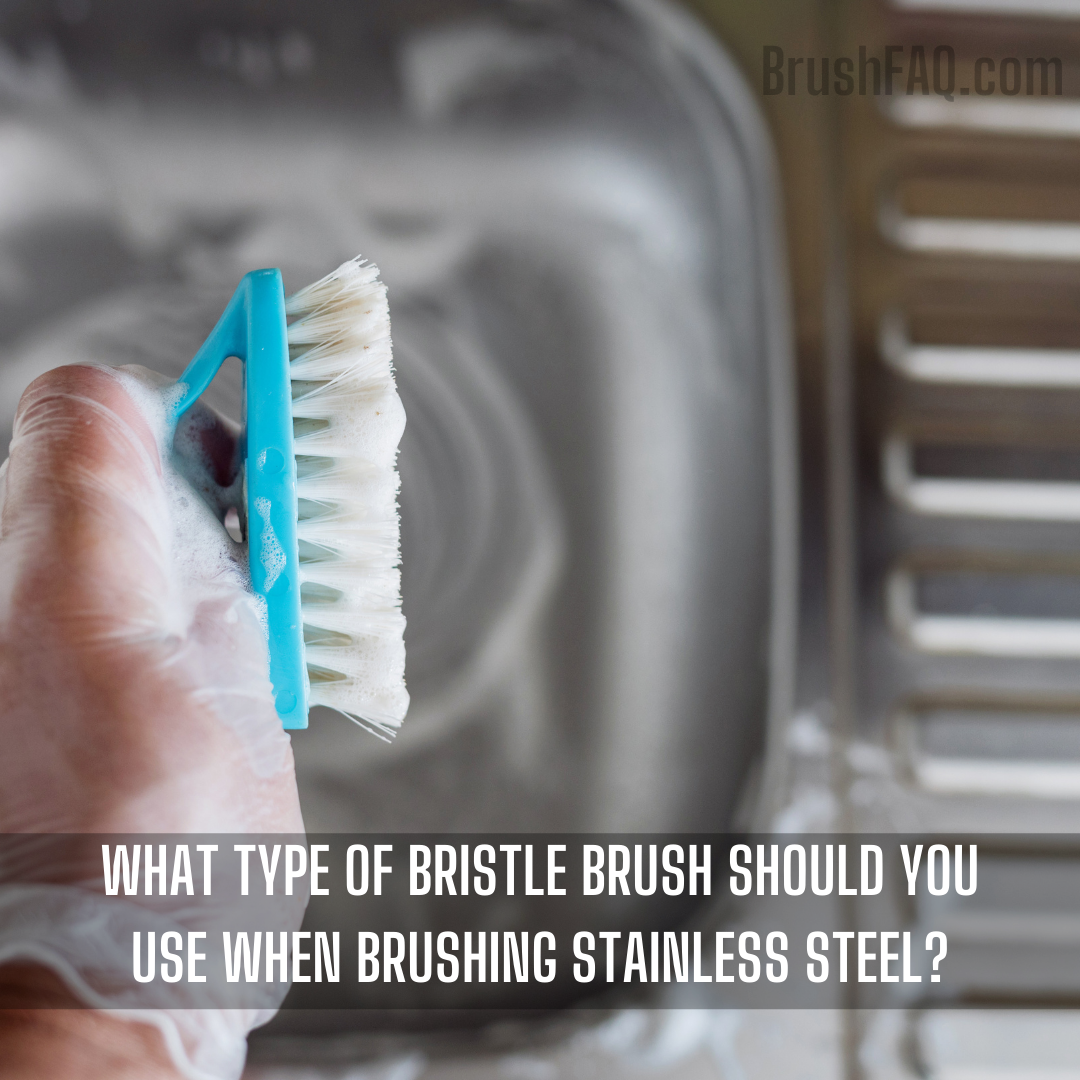Table of Contents
What Type Of Brush Should You Use To Clean Stainless Steel?
Everyone loves to have a shiny new set of items or equipment in the kitchen. For pushing your culinary skills to new heights, you should know the basics of keeping your stainless steel cookware looking good and working perfectly. Are you wondering what type of bristle brush should you use when brushing stainless steel?
Brushing stainless steel might seem like a simple task unless you’re trying to decide what type of brush to use. I looked at several types of brushes and went through an exhaustive process before deciding on the best bristle brush for steel. I’m going to walk you through the entire process so that you can make your own decision.
Soft brushes are ideal for stainless steel, particularly when the metal is being finished with a satin finish or mirror finish.
A soft bristle brush will yield better results than a stiffer brush and should be used on stainless steel with a mirror or satin finish.
The metal is more likely to scratch or damaged by a hard-bristle brush, so it is important to choose the right one for your application.
When choosing a bristle brush, consider the finish of your stainless steel and whether hard bristles could damage it.
How to Choose a Stainless Steel Brush
There are several types of bristles are available for use on stainless steel brushes
Natural fibers bristle brush
They designed natural bristles made of horsehair, boar hair, or other natural fibers to hold a lot of liquid (like soap or oil) and spread it across the surface.
The drawback of these brushes is that they can hold on to particles of contamination (dirt, grease, etc.) when cleaning a surface. They also fray and leave hairs on the surface during use.
If you prefer these types of brushes, look for them in the paint section at a hardware store rather than the grill tools section at the grocery store or big box store.
>> Read Also: What Kind Of Brush Do You Use On A Cast-iron Skillet?
Synthetic fiber bristles brush
The best way to remove tough stains from stainless steel is to use a nylon scrub brush. Apply some cleaning product (i.e., bleach, vinegar, baking soda) and scrub in the grain’s direction. Stainless steel can rust when exposed to moisture and chemicals like chlorine bleach.
When buying a scrub brush for your stainless steel appliances, choose one with nylon bristles. These are less likely to scratch than wire bristles, which can damage the finish.
If you’re worried about scratching your appliances, use a sponge or cloth instead of a scrub brush to wipe off any stains or stubborn bits of food.
Stiffness matters bristles brush
If you are finding a brush that can help you clean your stainless steel products, then this brush is your best choice.
The brush has excellent rust resistance and durability. It can clean and polish metal surfaces. It can also clean dirt and dust on the surface of various objects such as stainless steel cooking ware.
While there is no one-size-fits-all brush for all applications, the choices, and variables listed above will help you select the best brush for your specific needs.
However, stainless steel is a durable and low-maintenance material for kitchen appliances. If you have stainless steel appliances, it is important to know what type of bristle brush should I use when cleaning them.
Some people believe that hard-bristle brushes are better for cleaning stainless steel because they remove the surface contaminants from the metal’s surface.
>> Read Also: Should I Use A Scrub Brush To Clean Stove Top Burner?
However, these types of brushes can also damage the finish on your appliances.
If you have a satin or mirror finish on your stainless steel appliances, it is best to use a softer bristle brush when cleaning them.
It is important to choose the right one for your application because the metal is more likely to scratch or damaged by a hard-bristle brush.
Finally
The soft-bristle brush will remove dirt from your appliances without causing damage. There is no need to be overly cautious with the softer brushes since they constructed them out of less rigid materials. They made the bristles out of finer materials so that they can maintain their shape longer, but still be as effective at cleaning.

